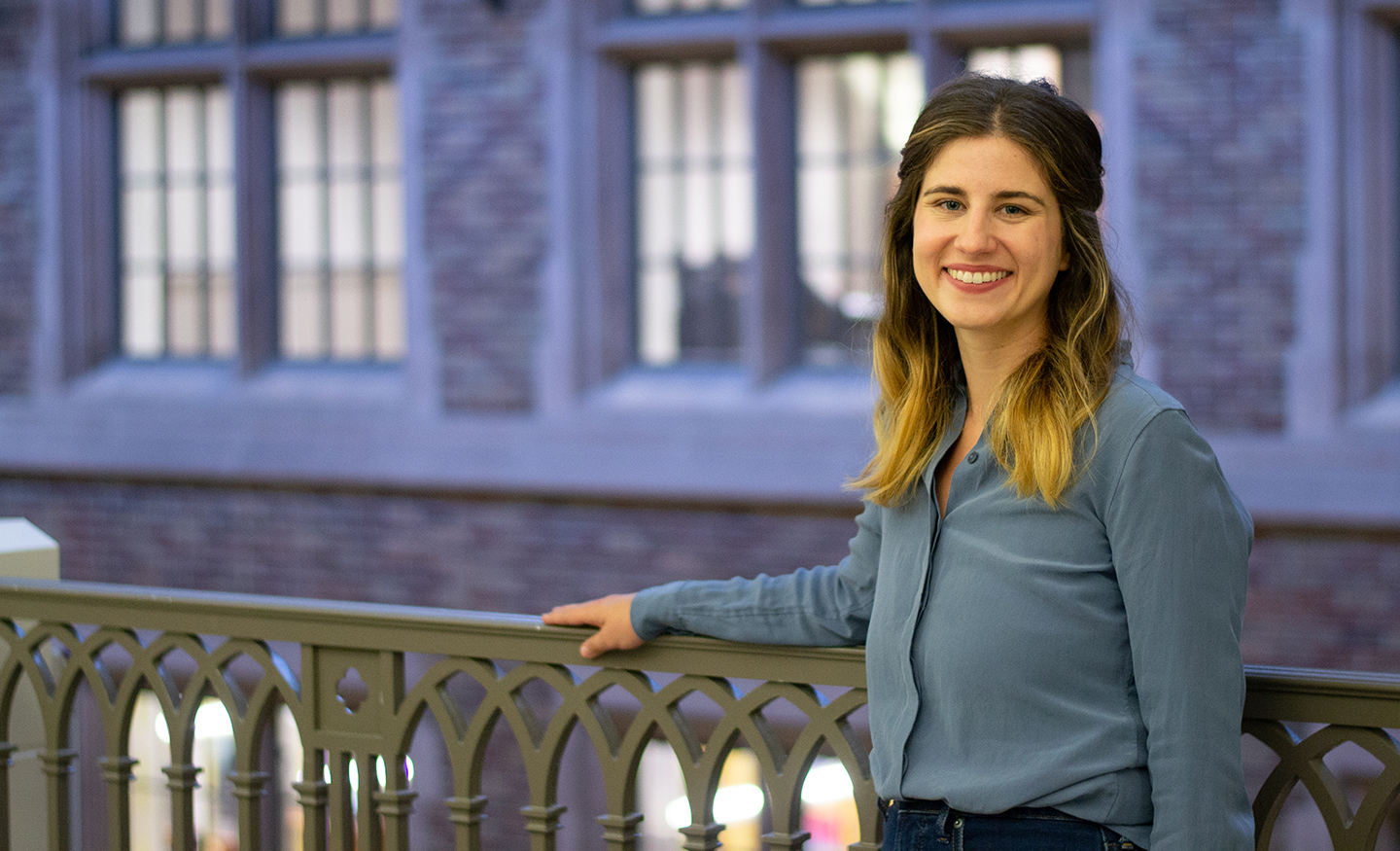When Amanda Phillips came to the iSchool, she’d already had a successful career, albeit in a field quite different from those of most fellow students. In her 10 years in marine science, she’d worked on fishing vessels as a biological observer, sailed with a poop-sniffing dog to collect orca fecal matter, and piloted a remotely operated vehicle to study endangered rockfish.
Now in her second year of the iSchool’s Master of Science in Information Management program, Phillips is learning skills to move from collecting data to analyzing it. Through an internship over the summer, she has already started using her iSchool education to protect the marine environment, specifically by helping to prevent illegal fishing.
Phillips loved her work in marine science, but she was ready to advance her career and knew she needed a master’s degree. As she considered her next step, she remembered a night during her undergraduate studies when she was leaning over a microscope, cataloging plankton species at 2 a.m. The next morning, she and her classmates summarized 24 hours of data that illustrated how plankton followed the movement of the sun.
"I looked for a program that had that element of making chaos into order."
“That was what really excited me about marine science in the first place,” she said. “It was finding that order in chaos. So I looked for a program that had that element of making chaos into order.”
That search led her to the iSchool and the MSIM program. It met all of her career goals and, as an added bonus, it allowed her to stay close to her beloved Salish Sea.
Annie Searle, an iSchool senior lecturer, says Phillips’ unique professional background gives her a valuable perspective in classroom discussions. Searle was impressed with Phillips’ writing and her ability to address complex issues. Searle, who publishes collections of research notes in her “Reflections on Risk” series, has even offered to include two papers that Phillips wrote — one comparing the separation of Native American children from their families in the 1950s and ’60s to the current separation of migrant families, and another on genetic databases and ethics.
“I have no doubt that she will continue to be looked to by members of the mid-career cohort as a genuine leader, an incisive analyst and a person determined to make an impact on the world with her work,” Searle said.
This summer, Phillips worked at Vulcan, a company created by Paul Allen. She worked on Skylight, a software program to help authorities detect fishing vessels that may be operating illegally.
“Amanda has an unusual combination of strengths, thanks to her real-world experience doing marine science research and her training in data science. She was able to lead an important project that required both of these strengths,” said Mark Powell, a senior researcher at Vulcan.
Skylight uses satellite images and data analysis to help authorities identify vessels that are fishing illegally. Phillips was responsible for finding ways to group the vessels into useful categories to simplify the analysis. She concluded that there is no single correct way to group the vessels, and that it’s better to have a range of groupings for different purposes.
“She made concrete and specific recommendations that we are following as we move forward. As the project supervisor, I learned a lot from her process and results, and I’m using these insights in other projects,” Powell said.
Phillips is looking forward to further applying what she’s learned at the iSchool, perhaps by using data to help protect the Salish Sea’s endangered orcas. She was also thrilled to earn the 2019 Eric and Christine Larsen Endowed Fellowship for Innovation in Information Management, which gives her the financial stability to immediately return to work in marine science after she graduates next year.
“I thought I would need work outside the environmental field for a few years to pay off school loans,” Phillips said. “Instead, I can start working on these things I’m passionate about now. … It’s been really rewarding.”
